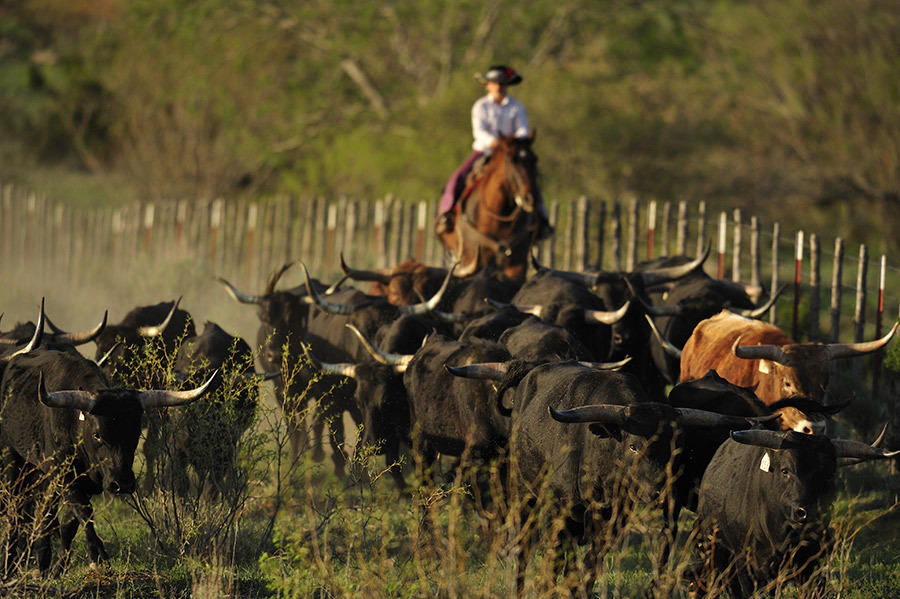



How Can EU Food be Produced to Higher Welfare Standards?
ANALYSIS - A five year plan has been launched to encourage the production, sourcing and consumption of food and products from animals to be from higher welfare regimes across Europe.The proposals put forward by the Farm Animal Welfare Forum call on the UK government to lead the way in forcing through new animal welfare measures in Europe.
The new measures follow on from the FAWF’s 2008 strategy that called for all egg-laying hens to be kept cage free, improvements in the welfare of chickens reared for meat, pigs to be kept in humane conditions without tail docking and improvements in welfare for dairy cows.
The strategy, outlined in the FAWF report Progressing Farming Tomorrow: Improving Animal Welfare in the UK, calls on the European Commission, led by the UK, to:
- To support a ban on the use of all cages, including ‘enriched’ cages, for egg laying hens in the EU
- To support clear, mandatory labelling of meat products according to the system of farming production, using defined terms that accurately communicate to the buying public
- To take action to support rigorous enforcement of EU legislation prohibiting routine tail-docking in pigs and requiring implementation of environment and management measures that reduce tail biting
- To take action to phase-out the use of the farrowing crate
- To establish EU-wide legislation to protect the welfare of dairy cows
The forum that consists of Compassion in World Farming, The Cooperative Food group, the Food Animal Initiative, RSPCA, the Soil Association, Bristol University and the World Society for the Protection of Animals, also urges the UK Government to support multi-stakeholder efforts to end calf exports and increase the proportion of calves that are reared for meat in humane systems.
The group also believes that the public bodies in the UK should be sourcing products raised and kept to these same high welfare standards.
The organisation is to encourage food companies to sell or use only higher welfare cage-free eggs and to sell or use only higher welfare cage-free egg ingredient in own label products.
The welfare group also wants to see eggs sourced from systems where hens are kept to high standards of welfare that bring the risk of pecking down to a minimum.
The FAWF also wants to see companies source eggs from hens that have not been beak trimmed.
The organisation is urging meat companies to source only high welfare chicken meat as a commodity and as an ingredient in processed products.
For pork, the strategy calls for companies to source pig meat from animals that have not had their tails docked and that have been reared on high welfare farms using extensive systems.
In the dairy sector, the FAWF wants to see companies source milk from cows that have been allowed to graze in fields during the grass growing season.
The group says that dedicated milk suppliers should be audited against a veterinary management plan for reducing the incidence of lameness in dairy cattle to less than 10 per cent.
The measures also demand that dairy bull calves should not be exported for further fattening and the dairy farmers need to show that they are being grown on and finished either as beef or veal.
The welfare forum wants consumers to buy high welfare meat, dairy and eggs raised in recognised and labelled systems.
And consumers are being encouraged to press the government to adopt the measures laid down in the report as well as encouraging the use of high welfare products in the workplace canteens.
In the report the FAWF says: “We continue to believe in collective action to improve the well-being of farm animals and to ensure that our food is assured of the highest quality and provenance. We will continue to mobilise all parts of the food chain, from consumers to producers, from retailers to manufacturers to regulators, to bring about reform and to ensure higher animal welfare in the food chain for the benefit of all involved.
“We will continue to work with farmers, food companies and regulators to achieve a thriving food and farming system, which results in all farmed animals being reared to higher levels of welfare, in an economically viable and environmentally friendly way.
“Having seen the success of our own collaboration and others such as the Beyond Calf Export Forum, we would also welcome a wider knowledge-sharing network involving government, NGOs, consumers, food business and farming organisations that supports higher welfare initiatives.”



